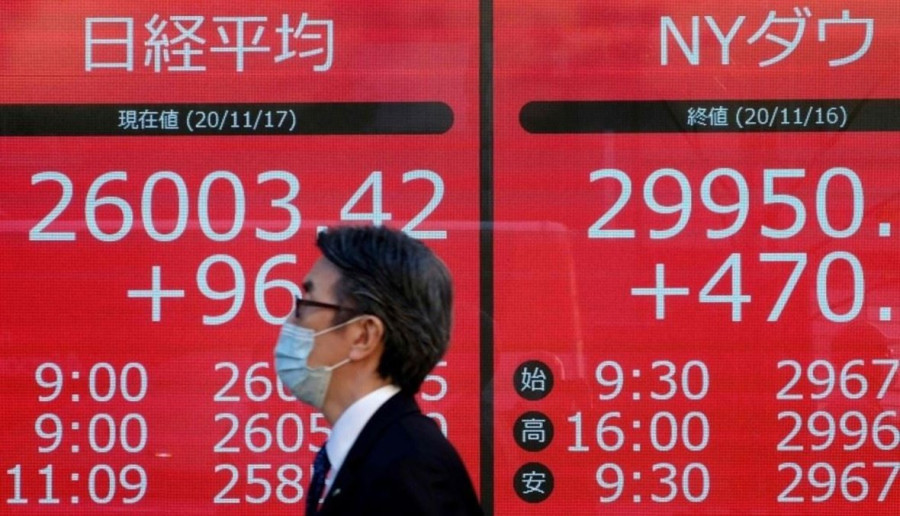The performance of Asian stocks varied in trading without a specific trend, before the release of a set of inflation data this week, which may provide better evidence about the US Federal Reserve’s policy expectations, while Japanese markets were closed on holiday.
Major indexes rose in South Korea and Taiwan but fell in Hong Kong and mainland China. US stock futures rose after the S&P 500 index closed slightly higher on Friday following reports that US job growth exceeded expectations, but the services sector slowed.
While US stocks rose on Friday, stocks around the world still fell by the most since October last week, as markets were shaken by a flood of corporate issuances, and the Federal Reserve indicated that it was in no rush to cut interest rates. Inflation reports are scheduled for Japan on Tuesday, the United States on Thursday, and China on Friday.
The Fed's next step
Frances Stacy, director of strategy at Optimal Capital Advisors, said in an interview with Bloomberg TV that the markets are trying to anticipate the Fed’s next move. The only reason they would cut interest rates in March is if the US faced a credit crisis and had to respond to it. But other than that, financial conditions are no longer favorable to some extent to gradually change their tone towards lowering interest rates.
On the currency front, the price of the US dollar declined against most of its peers in the G10, with the Australian dollar achieving the largest gains. While the price of the yen did not change much after recording its worst week in 16 months last week, amid controversy over when the Bank of Japan will start moving away from its accommodative monetary policy.
US 10-year Treasury bond futures fell, while there was no trading of Treasuries in Asia due to the Japanese holiday.
Inflation fell
Core inflation in the United States is expected to decline with data expected to be announced on Thursday to 3.8% on an annual basis in December compared to 4% in the previous month, according to a survey conducted by Bloomberg. Inflation reports in China and Tokyo - a broader indicator of Japan's economy - are also due as investors look to the People's Bank of China to ease monetary policy.
Mark Chandler, chief market strategist at Bannockburn Global, said: Core inflation and key interest rates are expected to continue to decline in Tokyo, and this will confirm that there is no pressure on the Bank of Japan - especially in the wake of the recent earthquake - to change its monetary policy. He added that although China is expected to announce a slower inflation slowdown, the economy needs more support and a cut in the standard one-year medium-term lending facility later this month appears increasingly likely.
US interest expectations
On the other hand, the US jobs report last week led to a decline in bets on implementing faster and deeper cuts in US interest rates, but swaps traders eventually adjusted their bets to approximately 140 basis points of monetary easing this year, and chances of about two-thirds of a reduction in rates. Interest in March. While some on Wall Street maintained confidence in the central bank's ability to tame inflation while avoiding recession.
In another corner of the market, Boeing shares will be in focus when Wall Street trading opens as the global grounding of the 737 Max 9 aircraft gathers pace after part of the fuselage exploded on a brand-new Alaska Airlines jet during flight.
In the commodities sector, the price of oil stabilized after recording weekly gains. Ongoing tensions in the Red Sea and supply disruptions in Libya offset indicators of market weakness, including Saudi Arabia lowering its official selling prices for buyers in all regions.






































